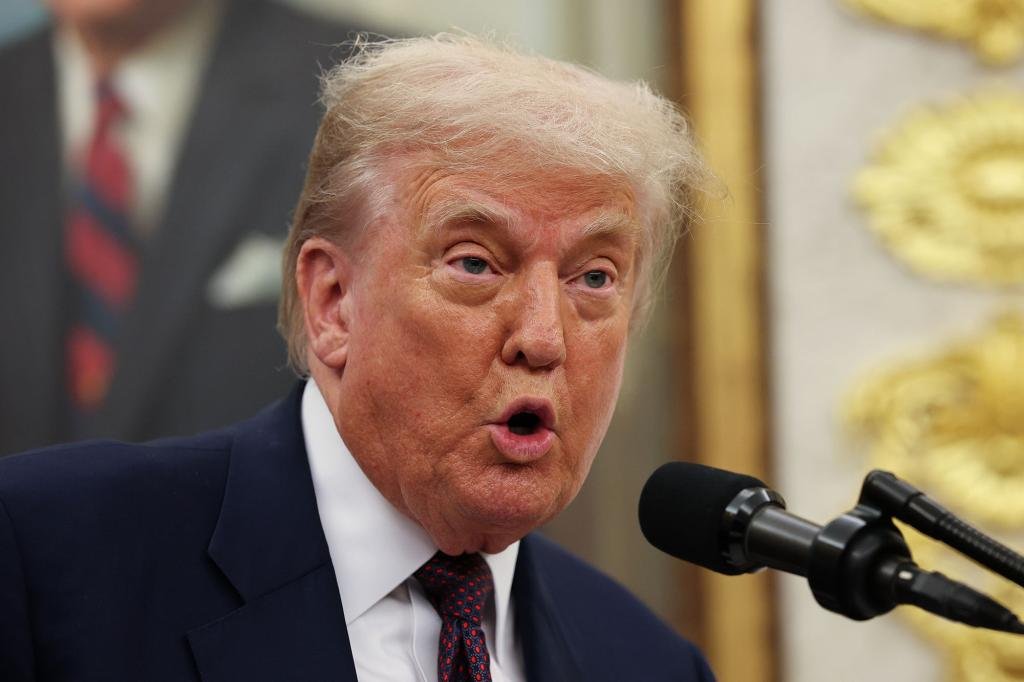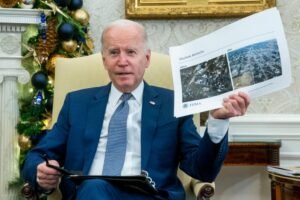
Hey, experts – admit how Trump’s tariff got very wrong

Economists expected through the political spectrum that President Donald Trump’s commercial negotiations It will end with a disaster.
Now that the deadline has passed on August 1 without the fall of the sky – and with the completion of many useful deals – It’s time to re -evaluate seriously The defective arguments that experts presented against its strategy.
It turned out that many of them made basic mistakes in economic thinking.
On the left, Joseph Steglitz, Nobel Prize -winning and Professor of Colombia in January, announced that Trump’s policy was “very bad for America and a world”, while Justin Wolfors Economic at the University of Michigan described it as “impressively destroyed.”
On the right, defenders of the free market such as George Masson Donald Bodro expressed strong opposition.
However, their arguments against customs tariffs revealed a fundamental misunderstanding: they criticized the customs tariff as harmful in a unique way, with the ignorance of this logic applies to everyone Taxes.
Take the joint criticism in which definitions are less, as a tax on trade, trade in general.
Phil Gramm and Larry Summers – one of the governorates, one of the liberals – has argued that the customs tariff “distorting local production” by pushing the resources towards less efficient uses.
And they warned the definitions that slow economic growth.
This is correct. but all Taxes, including sales taxes and income taxes, encourage trade, distort production and reduce growth.
Sales taxes are low consumption.
Income taxes inhibit the work. Corporate taxes deter investment.
All taxes distort economics – definitions are no exception.
Another repeated claim is that definitions harm consumers. Again, right – as all taxes do.
Logically, the definitions are simply opposed because they raise prices and reduce growth means that we must oppose all taxes.
But unless we cancel government spending – which is 7 trillion dollars this year – we need taxes of some kind.
For this reason, economists usually argue to reduce the total economic damage caused by all taxes in all fields.
Increased abnormalities as tax rates do.
Before Trump’s policies, the average US tariff rate of only 2.5 % – small compared to the average personal income tax rate of 43.4 % (including federal and roll up) or the average corporate tax rate of 27.5 %.
If we understand the tariff as a tax like any other tariff, it can actually Reduce The general economic burden on American individuals and companies – as a result Trump is often described As his final goal.
It is unclear whether the tariff is 15 % perfect, but it seems clear now that the 2.5 % rate was very low.
Economists also missed how negotiating tactics work.
Trump began the threats of aggressive tariffs, frightening many economists – but the results are talking about themselves.
The United States has received deals that have largely opened foreign markets representing 55 % of Global GDP.
Even critics have I had to admit the transformation.
“To avoid the worst Trump tariffs, (the European Union) accepted an unbalanced deal,” the Washington Post admitted, while London’s financial Times described as how the European Union “surrendered to Trump Star Roller.”
“Under the new deal, taxes will not be imposed on American goods in Vietnam while Vietnamese exports will face a 20 % tariff in the United States,” the South China Morning Post – in the coverage that described Hanoi’s “optimism” regarding the agreement.
So, while the United States imposes a higher tariff on many imports, other countries have reduced or removed the tariffs of definitions on American goods, and many of its non -carrier barriers were also dropped.
These are great victories that economists have failed to expect, and that little thinking is possible even six months ago.
Experts also ignored other reasons for Trump to increase the definitions: as a means of providing national defense, freedom of the global seas, and the costs that the Americans have held a century ago.
Ideally, other countries will help pay the price of these efforts – what about them only send us a check to get the share of the benefits they receive?
But since this is not about to happen, the definitions may be the only applicable alternative.
Trump’s commercial policies defied the terrible predictions of economists, as it has made great gains in opening foreign markets for American exports without American economy tanks.
If the definitions can help reduce destroyed taxes with the progress of strategic national interests, they deserve more Honest and accurate evaluation.
At least, economists must have courageous I admit that they were wrong – And a closer look at their traditional wisdom.
John R. Lot Junior, President Crime Prevention Research CenterHe is an economist who held research or teaching positions at the University of Chicago, Warton College of Business, Stanford, Yale and UCLA.













Post Comment